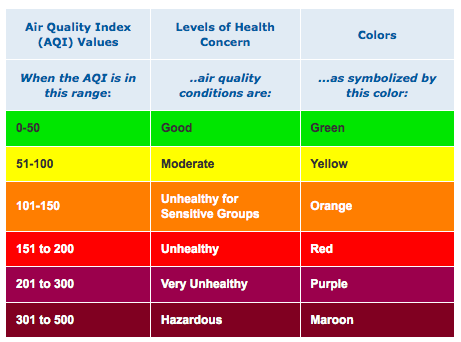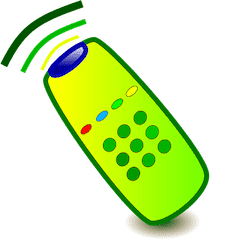Best Air Purifiers for Your Home
Don't be Fooled, What You Need to Know
The right air purifier will improve indoor air quality, remove dust and provide a healthy environment inside your home
Indoor Air More Contaminated Than Outside
Lung Related Illnesses and Allergies On the Rise
As our population ages, chronic lung disease is on the rise. More and more people are suffering from lung related illnesses and severe allergies. It's only after reaching for countless medications, some will only end up finding welcomed relief after installing an air purifier in their home. People who installed air purifiers report less congestion, sneezing, runny noses and even experience a deeper more sounder sleep. |
| Click here to check the air quality in your area |
Beware of Cheap Air Purifiers and Marketing Hype
The air purifier market is full of snake oil, false claims and techno features. Many low cost units simply do not work and some can even cause more harm than good. While prices and features vary from low end to high end, purchasing a high quality air purifier that works effectively can cost a significant amount of money in initial purchase price and filter maintnenance.Avoid Air Purifiers with These Features
Be wary of any air cleaners that put out ozone. While ozone smells nice, it can end up causing lung irritations and do more harm than good. If you choose a model that generates ozone, be sure there is a way to turn it off with a separate switch and do not have people or pets inside the home when it is on. Negative ions is another feature that can have unintended consequences. As air particles take on a negative charge, this causes them to clump together and can cause black dirty spots on walls, and other surfaces. The EPA has even stated that air cleaners that generate ions can increase the particles being deposited into your lungs and absorbed into your bloodstream.Long Term Costs Associated with Air Purifiers
While some people will undoubtedly balk at the higher costs of purchasing a high quality premium air purifier. The initial cost is only part of the associated cost. The cost of filter maintenance is where it can get quite expensive. Often times this costs much more over the life of the equipment than the initial cost of a premium air purifier. Some air purifiers contain multiple filters and recommend you replace them as often as every six months to keep the warranty intact.Choose a Reputable Manufacturer
Two or three years from now when you need a new filter, a long term company will still be in business to provide filters or support should you need your air purifier repaired under warranty. Look for a company with a long history and proven track record. While many less expensive models are flooding the market from China, after market support may not be there when you need it most.Every Air Purifier Should Have These Features
Provide Pure Air: The most important feature of any air purifier is it should be able to clear the air of particulates. Particulates are the small particles floating in the air, some you can see and most are not even visible. Try this at home, in pitch darkness take a flashlight inside a room where you spend the most time and turn it on. You will see little particles floating inside the air all around you. These are made up of dust, pollen, along with any pet and human dander. For a more scientific testing method to monitor your indoor air quality you can get a Dylos DC1100 Laser Air Quality Monitor. This will tell you how good or bad the air is by accurately counting particles and displaying them on a LED graph. According to recent research, tiny particles can actually be absorbed into your blood stream through your lungs and have long term ill effects on your internal organs and health. A high quality air purifier should remove as many as these particles from the filtered air as possible.
 |
| Winix WAC9500 Ultimate Pet True HEPA » |
To meet the minimum requirements of a HEPA filter, the filter must be tested and certified to prove that it will remove at least 99.97% (9,997 out of 10,000) of particles 0.3-micron in diameter from the air passing through the filter. Particles that size are about 300 times smaller than the diameter of a single human hair, and 25 to 50 times smaller than we can see with the human eye.A high quality air purifier will take in dirty air and push air through a HEPA filter and capture nearly all particles 0.3 microns in size or larger. Some purifiers have HEPA filters designed to capture even smaller particles than this. Air purifiers that used sealed HEPA filters will not allow dirty air to bypass around the filter. Air purifiers that are not sealed are often touted as being a little quieter. Since they only filter a portion of the air going through the unit, they are not as effective and need to perform more air exchanges to get the air clean. They also collect more dust and dirt inside the purifier housing and on the fan, this makes maintenance more of a chore. Another important thing to consider is HEPA filter size. Larger filters can last three or four years with proper pre-filter maintenance. Since the HEPA filter is the most expensive filter in an air purifier, this alone can significantly add to operation costs.
Proper Air Flow and Sizing: Many times manufacturers over rate their products giving the impression that it will filter an entire house or filter more square feet than rated. At best, most residential air purifiers are designed to filter single rooms or larger open areas. Multiple locations in a home often require additional air purifiers. Most people simply use them in rooms where they spend a majority of their time or move them from room to room. A high quality air filter is very effective for the rooms they are placed in if the room is closed off from outside air. This is important as you don't want to clean the entire outdoors. Properly sized air purifiers will dramatically reduce the particulate count in the air over time by providing several complete air exchanges per hour.
CFM: (cubic feet per minute) of air flow is how most manufactures rate their air purifiers. Calculating the correct size is easy as using this formula:
To determine the area of the room in cubic feet, measure the length and width of the room. Let’s say it is 10 feet long and 15 feet wide. Multiply 10 x 15 and you get 180 square feet. Now multiply total square feet (180) times the height of the room. Then you multiply your ceiling height of 8' x 180 and you would give you 1,440 cubic feet. You need to make sure the unit is rated at this many cubic feet and can perform enough air exchanges per hour to lower the particulate count.
 |
IQAir® New Edition HealthPro® Plus Air Purifier » |
Noise Level: Sound decibels seems to be one of the top concerns when people are looking at purchasing an air purifier. Since most units come with multiple and variable speed fans, this allows them to be run at a lower speed during times when watching TV or sleeping. It's important to compare manufacturer decibel ratings to determine if the air purifier will work in your particular situation at an acceptable noise level while still moving enough volume of air.
Construction: Quality air purifiers are constructed of either powder coated steel, aluminum or special plastics that minimize out gassing. They use special balanced fans that are rated to be run 24/7 over the lifespan of the purifier. Fans are also designed to provide low air resistance minimizing noise.
Automatic or Manual Operation: Many air purifiers are now being built with with digital controls, displays and particle counters to provide fully automatic operation. They even include timers or sensors to tell you when it's time to change air filters. Manual units while less convenient may offer higher long term reliability with less parts to break.
Today's Best Air Purifiers
After extensive research, these Top Three Air Purifiers stood out. You can read plenty of additional reviews by clicking on their names. They are manufactured by IQAir, Airgle, and Blueair. Other highly rated air purifiers are made by: Austin Air, Rabbit Air, Alen, Winix, Whirlpool, Honeywell and Oransi.Perfect Air Purifier
Choosing the right air purifier is a big decision and while no air purifier will meet 100% of everyone's criteria, luckily with advances in modern technology there are some excellent models to choose from. The links above, will point you to highly rated air purifiers. Individual needs and familiarity with each manufacturer's features and specs, will help you determine the best air purifier to to fit your needs.For the latest in TvStreaming and Cord-Cutting News
Join US @ Chitchat
And you will be notified whenever we post a new article
Join US @ Chitchat
And you will be notified whenever we post a new article
Thanks for Making us Your TV Streaming Destination
Roku Channels • Index • Contact • Disclosure • Privacy
© 2025 mkvXstream.com
Use of third-party trademarks on this site is not intended to imply endorsement nor affiliation with respective trademark owners.
We are Not Affiliated with or Endorsed by Roku®, Apple, Google or Other Companies we may write about.

© 2025 mkvXstream.com
Use of third-party trademarks on this site is not intended to imply endorsement nor affiliation with respective trademark owners.
We are Not Affiliated with or Endorsed by Roku®, Apple, Google or Other Companies we may write about.


